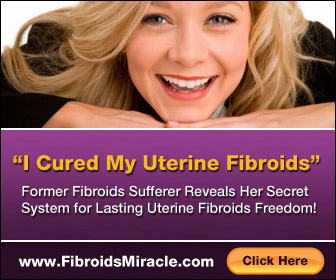In the Blood: Genetics and Uterine Fibroids
There are no conclusive studies yet that has pinpointed the exact causes of uterine fibroids or uterine leiomyomas, but medical experts agree that genetics and family history have something to do with it. Women whose mothers and sisters have had fibroids are likely to have fibroids too. Other risk factors that increase predisposition to these tumors include hormones, hypertension, and diet.
The possible solutions to your fibroids growth, however, are not influenced about whether or not you developed your tumors because of genetics and family history. The size and location of your fibroids will determine what solution is best for you. It would also be good to deeply contemplate about what your stand is when it comes to having babies in the future or, inversely, to giving up your fertility.
Protection and Prevention
Unfortunately, even when you know that you are at risk of having fibroids, there are no preventive medications that could absolutely guarantee that you are not ever going to have these tumors. There are ways for you to decrease your chances of getting them or, at worse, have them with minimal or no symptoms at all.
You can protect yourself from getting fibroids by making sure that your hormonal levels are balanced, that your body is generally well, and that you live a healthy lifestyle. Regular check ups with your gynecologist from the time you start your period are also recommended for early detection.
When You Already Have Fibroids
If you already have fibroids, the solution to your tumors do not lie in genetics or in your family history. These factors only contribute to your chances of developing fibroids. Once you have them, you have to look past your blood line for solutions. You need to focus on how you can manage their growth and minimize the symptoms.
It should please you to know that not all women who have uterine fibroids feel symptoms. You could be among the lucky ones whose fibroids just grow and then shrink without making their presence felt. This means that you should also manage your reaction to having fibroids. Get a good grip on your situation and move on accordingly. Your emotional state affects your physical and physiological state and has an effect on your fibroids growth as well.
Family Support
Since you have family members who have dealt with fibroids before, their symptoms would be familiar to you. However, it does not mean that you will have exactly the same experience with your own fibroids. Yours could be easier or worse depending on where and how big your fibroids grow in your uterus. The best management and treatment protocol for you could be different from what your relatives had to go through.
It is good to have people to talk to and discuss your own symptoms with. When you have a severe case of uterine fibroids and you have major decisions to make with your treatment, having family around you and giving you support will significantly ease your burden. Going through your ‘ordeal’ and getting well will be more bearable when you know that you are not alone and that the people around you understand what you are going through.


